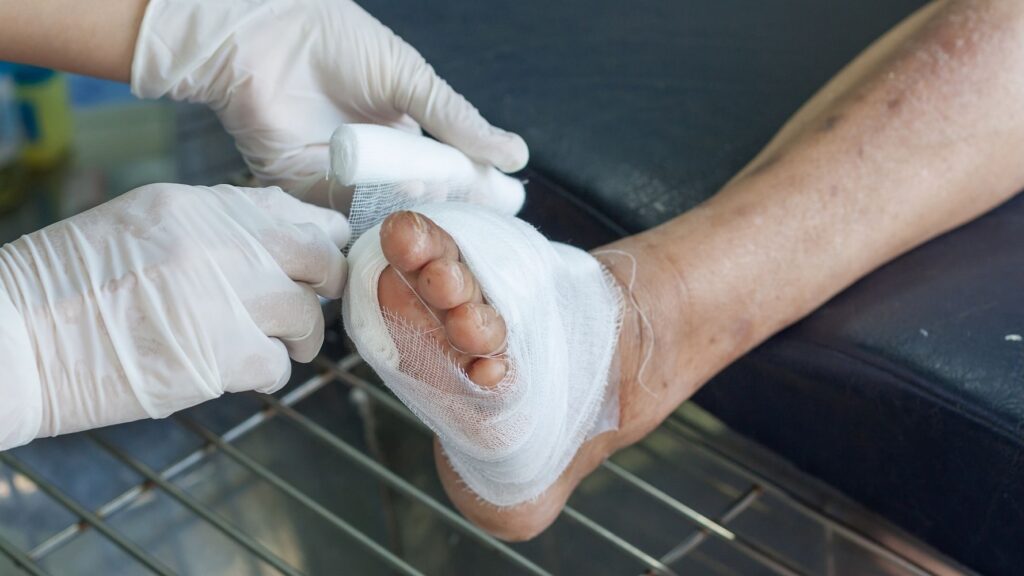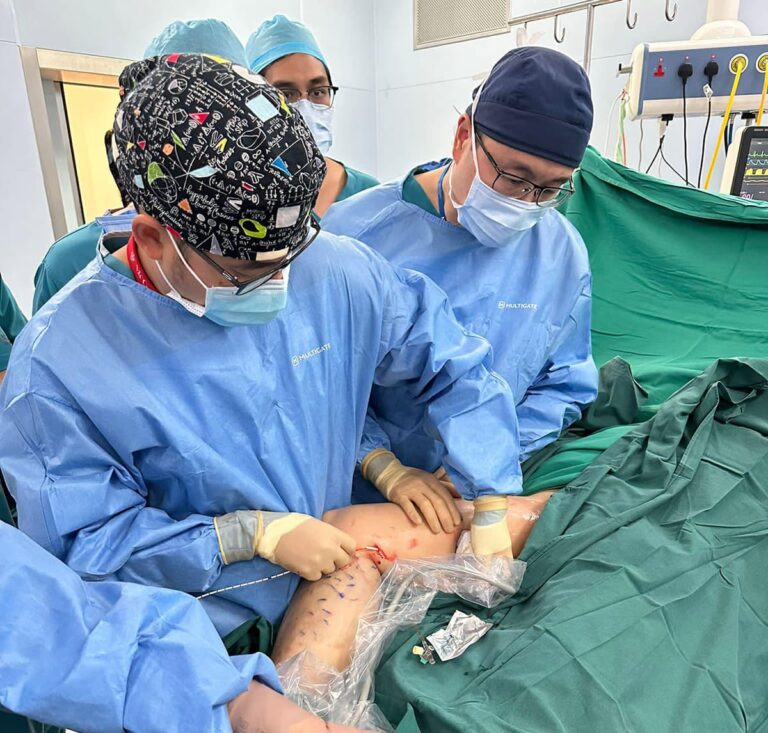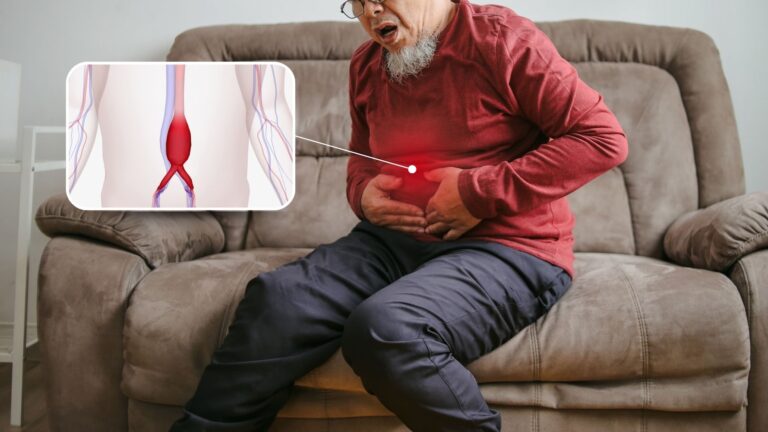Diabetic wound management in Singapore is crucial in preventing complications like infections or amputations. This article explores the causes of diabetic wounds, preventive measures, step-by-step care, comprehensive treatments and the importance of consulting a vascular specialist in Singapore for optimal health outcomes.
Why Diabetics Are More Vulnerable to Wounds
People with diabetes are particularly vulnerable to wounds that may not heal properly due to:

- Poor circulation: Reduced blood flow delays wound healing

- Neuropathy: Loss of sensation in the feet can lead to unnoticed injuries

- Weakened immune response: Infections can develop quickly without adequate defence

- Calluses and foot deformities: Common among diabetics, these increase pressure on certain areas, leading to skin breakdown
For individuals with these risk factors, seeking care at our wound care clinic in Singapore can prevent minor issues from escalating.
What Causes and Increases the Risk of Diabetic Wounds
Diabetic wounds result from a combination of factors:
- Prolonged high blood sugar damages blood vessels, hindering oxygen supply to tissues
- Nerve damage prevents patients from noticing injuries
- Infections develop more easily due to slower healing and poor circulation
Without proper diabetic wound care in Singapore, these wounds can progress to severe conditions such as diabetic foot ulcers, which require urgent intervention.
How to Prevent Diabetic Wounds
Preventive care is the first step in managing diabetic wounds.
Here’s how patients with diabetes can reduce their risk:

1. Daily foot inspections: Check for cuts, blisters, redness or swelling

2. Proper footwear: Choose comfortable shoes to avoid friction and pressure

3. Hygiene: Clean and moisturise feet daily to maintain healthy skin

4. Blood sugar control: Keeping glucose levels within range aids healing

5. Regular check-ups: Schedule consultation with a vascular specialist in Singapore to monitor and address circulation issues
When to See Our Vascular Specialists
Timely care is essential for effective diabetic wound management in Singapore.
You should schedule a consultation with our experienced vascular specialists if you notice:
- A wound that doesn’t improve within a week
- Signs of infection, such as redness, discharge or warmth around the wound
- Persistent or increasing pain, swelling or discomfort in the affected area
Our vascular specialists, Dr Tang Tjun Yip and Dr Juilian Wong, provide tailored care and comprehensive solutions to address diabetic wounds effectively. Regular follow-ups ensure thorough assessment, continuous monitoring and proactive prevention of future complications.
Don’t wait. Reach out to us today for expert guidance and care.
Comprehensive Treatment Options at The Vascular and Endovascular Clinic
At the Vascular and Endovascular Clinic, we offer evidence-based treatments designed to support healing and improve patient outcomes.
Our vascular specialists work closely with each patient to develop tailored care plans that address their unique needs.
Key diabetic wound treatment in Singapore include:
- Blue Light Therapy (EMOLED) uses specific wavelengths of blue light (400-450 nm). This therapy has anti-inflammatory properties, reduces bacterial load and promotes tissue regeneration.
- Negative Pressure Wound Therapy (NPWT) uses controlled negative pressure to draw out excess fluid, enhance blood flow and stimulate the growth of healthy tissue.
- Granulox Topical Oxygen Spray: A specialised spray that delivers oxygen directly to the wound, speeding up the healing process.
- Hyperbaric Oxygen Therapy (HBOT) and Topical Oxygen Therapy: These therapies increase oxygen supply to the wound site, promoting tissue repair and reducing infection risks. HBOT involves a pressurised chamber, while topical oxygen therapy provides localised oxygen delivery.
- Geko Therapy: A non-invasive treatment that uses electrical stimulation to improve blood circulation, supporting the healing of chronic wounds.
- Split Skin Grafting: A surgical procedure where healthy skin is transplanted to the wound site to accelerate healing, often used for more complex or extensive wounds.
Our vascular specialists play a vital role in guiding patients through these treatments, ensuring each approach is optimised for optimal outcomes. From diabetic foot ulcer treatment to long-term wound care strategies, we are committed to providing comprehensive support throughout your healing journey.
Step-by-Step Care for Diabetic Wounds
Immediate action is essential when chronic wounds occur.
Follow these steps for effective diabetic wound care in Singapore:

1. Clean the wound: Use sterile solutions to prevent infection

2. Dress the wound: Apply specialised dressings to protect it and promote healing

3. Monitor for signs of infection: Look for redness, swelling or discharge

4. Offload pressure: Use offloading devices or avoid weight-bearing on the affected area

5. Seek professional care: Visit our wound care clinic in Singapore for tailored treatments and advice
Ensure Better Outcomes for Diabetic Wounds at The Vascular and Endovascular Clinic
Diabetic wound management requires a proactive approach to prevent complications and promote healing. At the Vascular and Endovascular Clinic, our team of senior vascular specialists provides a comprehensive evaluation to identify the underlying causes of your condition. We create personalised treatment plans by assessing your medical history, symptoms and wound progression.
Don’t wait for a minor wound to become a major problem. Schedule a consultation with a vascular specialist in Singapore today.







